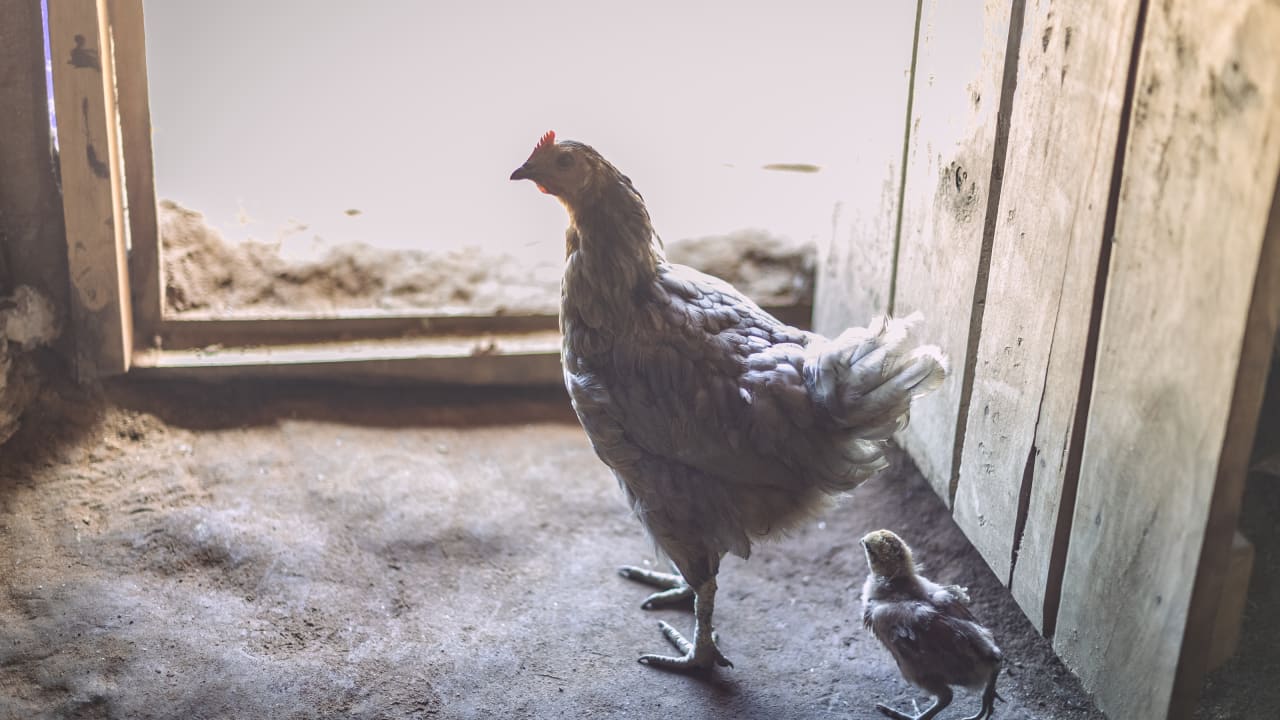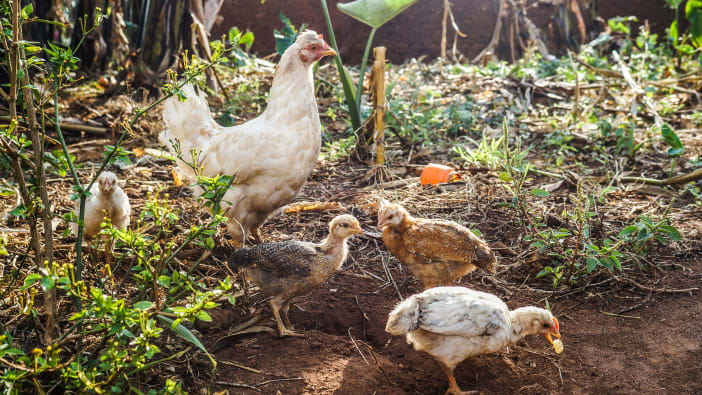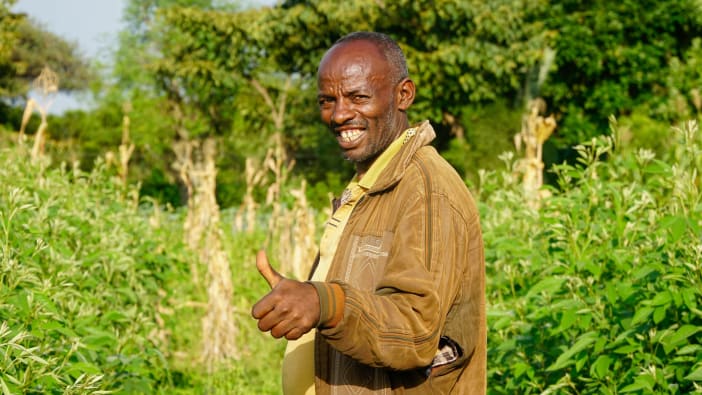by Professor P B Spradbrow
Most rural families in developing countries keep chickens, even those families that are too poor to own other animals. These chickens must scavenge for most of their food, although sometimes they receive household scraps as well. The chickens are not penned up and often they lack even basic housing. Village chickens are available for sale or barter and they provide meat or eggs. All too frequently a serious disease called Newcastle disease reaches the village flocks and kills all the chickens, depriving the owners of an important source of income and often their only supply of animal protein. If Newcastle disease could be controlled in village chickens, the village flocks would be much more productive and village people would devote more effort to raising chickens.
Vaccines against Newcastle disease are available and they are widely used in commercial poultry. These conventional vaccines are seldom used in village chickens and there are several reasons for this. First, the vaccines are readily destroyed by exposure to heat and they must be kept under refrigeration from the time of manufacture until they are used to vaccinate the chickens. In rural areas in many countries it is not possible to supply refrigerated transport or storage and the vaccines will be inactive by the time they are used. This is a problem also with many human vaccines and with animal vaccines other than Newcastle disease vaccine. The other problem is the need to catch chickens to apply conventional vaccine by drops into eyes or nasal cavities. Village chickens, especially those that roost in trees at night, are very difficult to catch!
The Australian Centre for International Agricultural Research (ACIAR) has been carrying out a research project on the development of Newcastle disease vaccines for use in chickens in Asia with help from the University of Queensland, Australia and the Universiti Pertanian Malaysia. Field trials were held in rural Malaysia and in other Asian countries.
The first step was to produce a heat-tolerant vaccine that had reduced requirements for cold storage. Variants of the Australian V4 strain of Newcastle disease virus were exposed to high temperatures for increased periods. V4 was already a vaccine strain that protected chickens but that produced no disease. Now it could survive at tropical temperatures for some days. To avoid any requirement for catching chickens, the vaccine was put on food that was thrown to the chickens. Chickens that ate this food became vaccinated. They also secreted the virus, to vaccinate other chickens in the flock that had missed out on the food vaccine.
Various foods can be used. In Malaysia wheat is favoured, while many countries use some form of rice - even unhusked ‘paddy’ rice. When more countries apply the vaccine, it will need to be tested on food that is locally available. The simplest methods of vaccination involve taking the vaccine to villages, where it is mixed with food immediately before the food is offered to chickens. It is necessary to allow enough food to satisfy most of the chickens in a flock - usually 7 to 10 grams per chicken. If less food is used, only the larger, dominant chickens will receive vaccine. In most countries, local preparation of the food vaccine will be necessary. Transport of large quantities of food vaccine to villages would be too expensive.
Experiments at the University of Queensland are now using the vaccine incorporated in small pellets, so that a single pellet will contain sufficient for one chicken. This would allow preparation of vaccine in a central area and transport of the pellets to villages where they would need to be ‘diluted’ in other food. Transport costs would be low but vaccine preparation could be concentrated in centres with suitable facilities.
Different countries have made various degrees of progress with the vaccine. Malaysia has elected to use the heat-resistant food vaccine in village chickens on a country-wide basis. Other countries in Asia are extending their initial pilot trials. Some countries that have adequate housing for village chickens may decide to use heat-tolerant vaccine and to catch their chickens for vaccination. Trials of oral vaccine are being planned in some African countries.
Some countries are producing their own heat-resistant vaccines, while Arthur Webster Pty Ltd, Sydney, produces commercial heat-resistant V4 vaccine. Scientific details of the ACIAR project have been published recently.
Professor Peter Spradbrow supervises the Veterinary Virus Laboratory in the University of Queensland, PO Box 125, Kenmore 4069, Australia. He has a particular interest in the development of vaccines to prevent diseases in domestic animals.
Editor: Ask your extension agents to make enquiries about whether this helpful new vaccine is available in your own country and encourage them to persevere until supplies are available.









